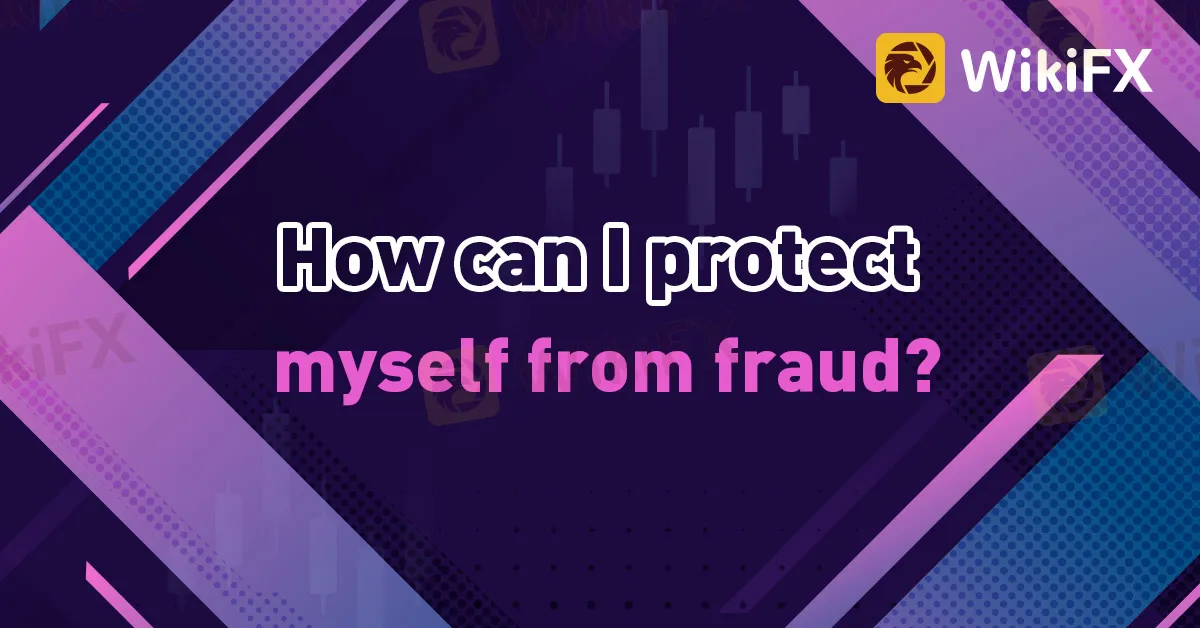简体中文
繁體中文
English
Pусский
日本語
ภาษาไทย
Tiếng Việt
Bahasa Indonesia
Español
हिन्दी
Filippiiniläinen
Français
Deutsch
Português
Türkçe
한국어
العربية
How can I protect myself from fraud?
Abstract:Numerous Forex-related scams target customers in South Africa, and we frequently receive emails from traders who are having trouble withdrawing funds from their accounts or are encountering other types of resistance from brokers whose only goal is to convince customers to deposit money before refusing to return it.

Numerous Forex-related scams target customers in South Africa, and we frequently receive emails from traders who are having trouble withdrawing funds from their accounts or are encountering other types of resistance from brokers whose only goal is to convince customers to deposit money before refusing to return it.
The finest resource for preventing forex frauds is the WikiFX app. WikiFX allows traders to rate and analyze forex brokers from all over the world. The program is available on both the Play Store and the App Store.
You can take certain actions to safeguard yourself.
Never give someone cash to do a transaction on your behalf. Anyone who makes investments on your behalf without a license from the Financial Services Conduct Authority is breaking the law in South Africa (FSCA).
Never transmit money to someone you meet on social media; according to our study, Facebook and Instagram are the origin of more than 50% of forex frauds.
Never believe a broker or anybody promising assured results. Profits are never guaranteed in high-risk speculation like forex trading.
Always verify a broker's regulatory status. Brokers that are subject to regulation must post their license numbers on their websites.
Once you have a broker's FSP or license number, you can check with the regulator to determine if it is valid. All licensed Financial Services Providers are listed on the FSCA's database in South Africa (FSPs). You can also examine the FSCA's register of all licensed Over-the-Counter Derivative Providers, which lists all South African-based Forex brokers who are required to obtain an ODP license as of 2021. (ODPs).
If your broker is not situated in South Africa, other important authorities with searchable registers include the FCA in the UK, ASIC in Australia, and CySEC in Europe.
What should I do if I believe I was defrauded?
The first thing you should do if you think you've been duped by a broker is get in touch with your local authority and file a complaint. You can get in touch with the FSCA in South Africa here. You can also get in touch with the FAIS Ombudsman using this page if your complaint involves a licensed South African broker.

Disclaimer:
The views in this article only represent the author's personal views, and do not constitute investment advice on this platform. This platform does not guarantee the accuracy, completeness and timeliness of the information in the article, and will not be liable for any loss caused by the use of or reliance on the information in the article.
Read more

TradingView Brings Live Market Charts to Telegram Users with New Mini App
TradingView has launched a mini app on Telegram, making it easier for users to track market trends, check price movements, and share charts.

Unlocking the Power of Algo Trading: Benefits and Limitation
Algorithmic trading merges speed, data, and automation—but can it outsmart human intuition and market chaos? Explore its power and pitfalls.

Do This ONE Thing to Transform Your Trading Performance Forever
The story is all too familiar. You start trading with high hopes, make some quick profits, and feel like you've finally cracked the code. But then, just as fast as your gains came, they disappear. Your account balance dwindles, and soon you’re left wondering what went wrong. Worse still, fear and confusion creep in, making every new trade a stressful gamble rather than a calculated decision. If this cycle sounds familiar, you’re not alone.

This FREE App Is Helping Millions Avoid Financial Scams
Fraudulent brokers, Ponzi schemes, and deceptive trading platforms are on the rise, making it increasingly difficult to distinguish between legitimate and illicit financial services. Fortunately, there’s a powerful, free tool designed to help users identify and avoid scams before it’s too late—WikiFX.
WikiFX Broker
Latest News
Exposing the Top 5 Scam Brokers of March 2025: A Closer Look by WikiFX
Gold Prices Climb Again – Have Investors Seized the Opportunity?
Webull Launches SMSF Investment Platform with Zero Fees
Australian Regulator Warns of Money Laundering and Fraud Risks in Crypto ATMs
The Withdrawal Trap: How Scam Brokers Lure Victims into Paying More
FCA to Investors: Think Twice Before Trusting These Brokers
Trump\s tariffs: How could they affect the UK and your money
Trump gambles it all on global tariffs he\s wanted for decades
TradingView Brings Live Market Charts to Telegram Users with New Mini App
HTFX Spreads Joy During Eid Charity Event in Jakarta
Currency Calculator







